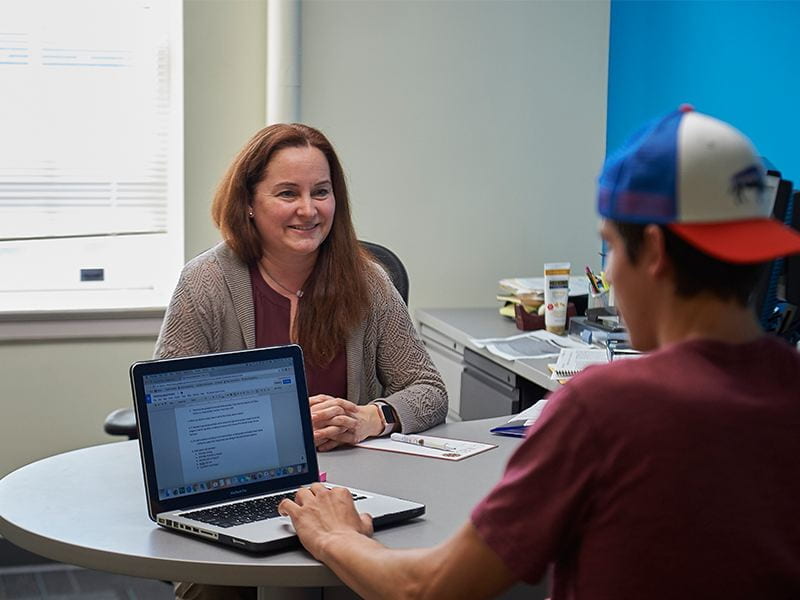See the original article by Sean Yoder and Emily Fogel Conway in Penn State News.
Starfish early indicators progress survey begins Jan. 22
UNIVERSITY PARK, Pa. — The Starfish early indicators progress survey will run from Jan. 22-31, giving instructors the opportunity to provide crucial early feedback to students and, if necessary, activate a larger student support network.
Progress surveys, which are highlighted with two campaigns each semester, help alert students and those who support student success to not only act proactively but also reinforce an instructor’s expert recommendations. Feedback can help with course-based challenges or identify other concerns such as severe illness or lack of access to technology before a student gets too far behind.
Starting Jan. 22, instructors and teaching assistants formally listed as instructors of record in LionPATH will receive an email prompting them to complete progress surveys for their full-semester undergraduate courses. Progress surveys can be completed by clicking the link, checking boxes for each student, and, if they wish, providing written feedback. A video for instructors and teaching assistants on how to complete a progress survey is available on Kaltura. Instructors can raise a flag, give kudos or recommend a student “to-do.” Academic advisers are asked to follow up on an instructor’s concerns, reach out to students and close the loop on flags and to-dos.
New tracking items show better outreach and response rates
The new tracking items introduced in fall 2023, which focused less on flags and more on instructor recommendations, prompted an increase in outreach to students.
According to data compiled by the Division of Undergraduate Studies, there was an 8% increase in academic advisers or others taking additional action on instructors’ recommendations or concerns compared to fall 2022. For to-dos where instructors encouraged students to talk with an academic adviser and the adviser recorded outreach, 69% of students then responded to adviser outreach.
World Campus, DUS, Dubois and Shenango lead the way in outreach
World Campus advisers resolved 75% of flags in fall 2023, the most of any advising unit. Division of Undergraduate Studies advisers at the University Park campus resolved 68% of all flags.
Penn State Dubois and Penn State Shenango led the way for campuses by documenting outreach for 97% of flags.
“An area of growth for us at Penn State is ensuring that all students have access to a standard level of quality academic advising. Using data to drive action is one of our main goals,” said David Smith, associate dean for advising and executive director of the Division of Undergraduate Studies. “Though there is work to be done in this space, it is still very rewarding to see the ways that academic advisers are playing a critical role in proactively supporting the needs of learners across the University.”
Why early intervention can increase the chance for student success
Students who are alerted to the need for changes in their learning strategies during the first four weeks of the semester are more likely to pass the course than students who receive alerts in week five or later, according to data collected during 2023.
Students who learn of the need for adjustment to their learning strategies too late have little opportunity to significantly alter their grade. By the mid-semester progress survey period, the main decision for students is whether to late-drop a course, and interventions have a more limited chance of making a difference in course outcomes.
According to Smith, “The willingness of instructors to partner with academic advisers is a distinct advantage of the collaborative spirit we see across Penn State, especially as we attempt to advance equity initiatives. Early input from instructors is vital to the academic advising community in our mutual work to make institutional goals a reality.”
How academic advisers and students can respond to instructor feedback
Academic advisers are encouraged to close the loop with instructors when possible by letting them know the result of outreach. Even if a student does not respond to the academic adviser’s recorded outreach, an instructor raising a flag or to-do still helps Penn State learn more about interventions and student success over time. Sometimes, a student who doesn’t reply directly to outreach will still respond with increased participation. For more information on how academic advisers close the loop with instructors and students, visit the Starfish info webpage.
Students should contact their instructors or academic advisers if they receive a flag or to-do and need help in improving their coursework. They can also seek tutoring or other services such as counseling through Counseling and Psychological Services. The Division of Undergraduate Studies released a video tutorial for students on how to find Penn State support services, as well as how to use the Starfish dashboard and profile.
It is always important for students to track their own progress in a course. The absence of progress survey data should not be interpreted as the absence of concern or need for change.
Modified attendance flag released for spring 2024
Instructors will see a modified attendance flag during spring 2024 progress surveys. This flag makes it easier to draw early attention from academic advisers to a range of concerning patterns in student attendance, such as never attending, not attending regularly, stopping attendance or arriving late and leaving early.
“The Penn State Starfish team values input we receive from instructors about progress surveys,” Smith said. “Changes to the options for documenting attendance concerns came as a direct result of instructor input. We greatly appreciate the willingness of instructors to help us improve our efforts to support students with progress surveys.”
The Division of Undergraduate Studies is part of Penn State Undergraduate Education, the academic administrative unit that provides leadership and coordination for University-wide programs in support of undergraduate teaching and learning at Penn State.

